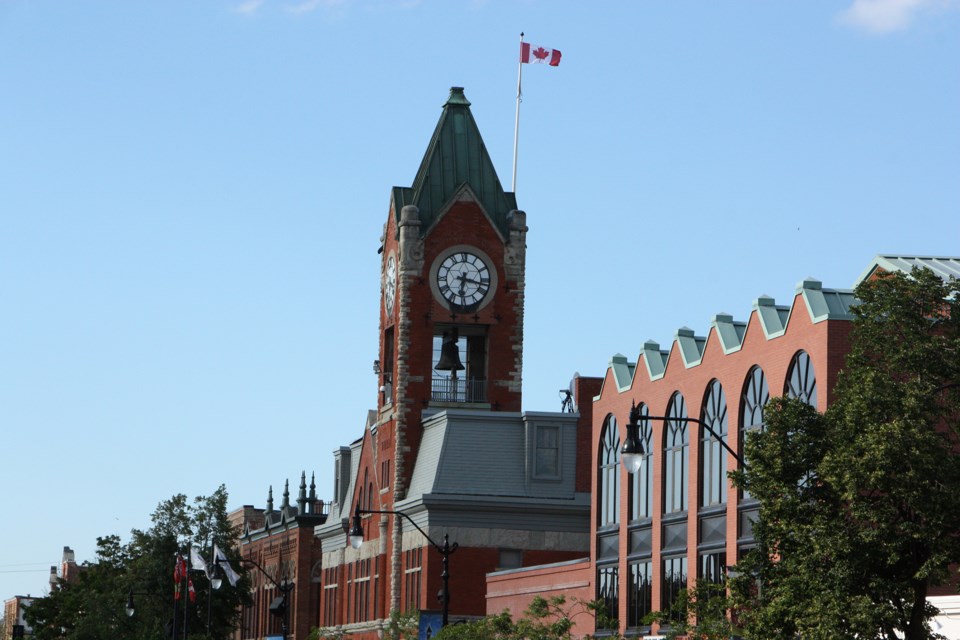Collingwood’s bylaw department is proposing a few changes to the way bylaws are enforced in Collingwood.
At a Strategic Initiatives Committee meeting on Oct. 31, the town’s Chief Building Official Greg Miller presented a report reviewing the town’s current bylaw enforcement work and proposed changes to the service delivery for the department.
Miller’s report suggested adopting a service level matrix to identify three levels of enforcement.
The first level would be enforcement by patrol, where the bylaw infraction is a high priority and a risk to public safety: for example an unsafe building, a dog running at large, or a private pool not secured by a fence. A patrol-level service would deal with the matter immediately.
The second service level would be proactive, where a municipal law enforcement officer would observe the violation during his/her duties and would take steps to correct the violation. In this case, the investigation would start within one-to-three business days. Examples of the types of bylaws with this medium level priority would include exessive noise, graffiti, drainage and grading issues, and the zoning bylaw.
Finally, the lower-priority bylaws such as those dealing with parking violations (except in a fire route or accessible parking), regulatory licensing enforcement (like taxi sign damage), poop and scoop or a mobile sign, would be dealt with reactively (complaint-based) and an investigation would be launched within one to five business days.
Miller did say the town is dealing with an increasing number of complaints related to short-term accommodation. The only type of short-term accommodation permitted in Collingwood is a bed and breakfast where the proprietors are also residents of the building where the short-term accommodation is being offered.
Miller said bylaw staff had received 32 complaints about short-term accommodation by August of this year. There are nine cases under investigation, five with charges laid proceeding to court, and 16 have been shut down and are no longer renting on a short-term basis.
Miller said he would be bringing another report and analysis to council on options for dealing with short term accommodation.
Currently, the department operates mostly reactively to complaints received.
Miller said adopting a bylaw enforcement policy like the one he is proposing would help establish clear expectations and customer service standards, and would promote efficient use of staff resources.
He said a clear policy and service level matrix would help the town manage public expectations and still promote transparency and accountability.
Bylaw complaints have been steadily increasing since 2014 when there were 456 cases involving a municipal law enforcement officer and 1,321 complaints to 2019 when there has been 526 cases and 1,525 complaints, according to Miller’s report.
A majority of the complaints tend to be regarding animal control and property standards, followed by zoning, signs, parking, then noise.
The town continues to issue parking tickets with about 5,100 tickets projected by the end of 2019, that’s up from 4,094 issued in 2014.
The By-law Services Division within the Planning & Building Department consists of 4 full-time equivalent Municipal Law Enforcement Officers, 1.5 student enforcement officers between May and August, and 14 casual and part-time School Crossing Guards during the school year.
Collingwood’s by-law service is responsible for enforcing more than 40 bylaws in place in the town.
Additionally, the department handles some provincial offences prosecutions for the fire department, administers the school crossing guard program at nine intersections, and inspects taxi cabs and commercial patios for business licensing.
A council approved organizational realignment put the bylaw services division under the planning and building department on March 11, 2019.
Miller’s report states the first six months of the change have brought benefits with municipal law enforcement officers and building inspectors attending sites together for matters related to the building code and the town’s requirements for building permits.
The bylaw officers are being trained on the building code through these visits, and the building inspectors are being cross-trained on property standards and provincial offences procedures, according to Miller’s report.
The committee approved Miller’s proposed service delivery policy, which will now go to council for final approval at the Nov. 13 meeting.



